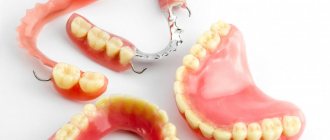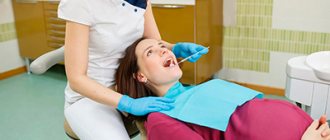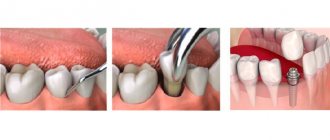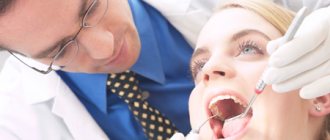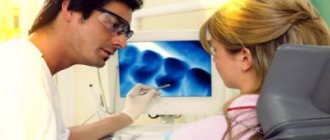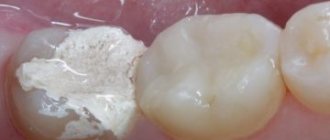Most gynecologists recommend prevention and treatment of the oral cavity before planning conception. This is due to the fact that during gestation a lot of calcium and other trace elements are lost to the baby, leaving some possible deficiency in the mother. That's why she often has problems. Dental intervention is undesirable due to the need for anesthesia, X-rays and some other manipulations. But in extreme cases, it is necessary to remove wisdom teeth or incisors during pregnancy (the second name is extraction). In the article we will consider the indications for this procedure and the features of its implementation depending on the timing.
Possible reasons
The toothache experienced by a woman in an interesting position can cause muscle spasms throughout the body, including the muscles of the uterus and other internal organs, which is very undesirable and can cause hypertonicity. The presence of an inflammatory process also leads to an increase in body temperature, bacterial infection of the gums, suppuration - all this has a bad effect on both the mother’s condition and the development of the fetus.
Therefore, dentists and gynecologists suggest that it is better to allow tooth extraction during pregnancy than to start the situation and lead to unbearable pain and inflammation.
What are the reasons for this:
- The inflammatory process can move from one area to another, affect different parts of the oral cavity, and cause diseases of the larynx.
- A bacterial infection that accumulates in the gums and causes suppuration enters the woman’s blood through the mucous membrane, and through the placenta to the baby.
- If the pain is severe, the girl may not eat as well, which will lead to an insufficient supply of nutrients and microelements.
- The mother’s poor emotional state is transmitted to the child (with negative impressions, the hormone melatonin is produced).
All this explains why extraction is needed in a number of cases.
Causes
Inflammation provoked by infectious agents progresses in the form of focal lesions. Often it affects not only the enamel layer of the tooth, but also its neurovascular system.
The disease can occur in acute or chronic form. It develops as a consequence of deep advanced caries. Therefore, a woman should consult a specialist already at the time of planning motherhood. After all, in a short period of pregnancy, even in the 1st trimester of pregnancy, pulpitis is already a serious problem, which is much more difficult for an expectant mother to solve than for an ordinary patient. Treatment of a diseased pulp will be significantly more complicated due to its condition.
How quickly the pathology will progress depends on a number of factors, including: the individual characteristics of the body, how long ago the first symptoms appeared.
The rate of development of the disease can also be affected by:
- decreased immunity;
- lack of calcium, magnesium, phosphorus.
Indications for tooth extraction in pregnant women
Due to possible infection of the wound, as well as due to the use of anesthesia, doctors do not always pull out incisors and molars (including third ones, that is, eights), but wait until delivery, but sometimes this is simply necessary if:
- Very extensive and deep carious processes have led to gum inflammation.
- Pulpitis has formed - this is a purulent lesion of the root system.
- The bone tissue is significantly destroyed.
- New growths have appeared that make it difficult to close the jaw.
- The pain is constant and cannot be relieved with acceptable painkillers.
It is a very unpleasant situation when you need to pull out third molars, because they have an extensive system of roots that can touch adjacent teeth. Often you have to make an incision, and the resulting wound can fester, then you will need to prescribe antibiotics. Their use is extremely undesirable (especially in the 1st trimester). Therefore, eights are removed only according to indications:
- Abnormal growth, during which the adjacent second molar may be destroyed.
- The appearance of an inflamed “hood”, suppuration.
- Acute pain.
Is it possible to have a tooth removed during pregnancy?
Each case is individual. When pregnancy is going well, and from the dentist’s point of view, extraction is necessary, then it’s worth deciding on it. The procedure is permitted if the benefit to the mother outweighs the potential harm to the baby.
Why do teeth deteriorate during the prenatal period?
Very serious changes and restructuring of the body are taking place. Hormonal levels change, immunity decreases, and calcium deficiency appears. All this leads to a decrease in resistance to bacteria, the development of caries, and also to the fact that hard bone tissue becomes more loose. Therefore, women, especially primigravidas, should be attentive to a dental examination before conception.
At what stage of pregnancy can teeth be removed?
In an emergency, you have to undertake treatment and tearing out at any stage. But there is a better one. In obstetrics, the entire prenatal period is divided not into months, as we are used to, but into weeks (40 in total). They, in turn, are divided into three trimesters.
First
It is considered the most important, since at this time the structure of all the cells of a small organism is laid - the emergence of an embryo. Also, the risk of fetal rejection - miscarriage - is most likely, so girls need to especially take care of themselves - not only to normalize their physical condition, but also to protect their psychological and emotional state.
The child is formed and actively takes all the substances that enter the woman’s bloodstream. But the placenta has not yet been formed (the chorion is in its place), so practically nothing prevents the penetration of bacteria to the baby. Everything will be reflected badly:
- any anesthetic;
- X-ray;
- fear of visiting the dentist.
But it is strictly forbidden to endure acute pain; this can cause spasms and hypertension, which will lead to miscarriage. Therefore, we will answer this - it is undesirable to have a tooth removed for pregnant women in the first three months, it is better to wait until 16-17 weeks, but in emergency cases, effective measures must be taken, minimizing the negative consequences if possible.
Second
Everyone agrees that this is the most appropriate period for dental intervention. At this time, the risk of gestation interruption is significantly reduced, and the placental barrier is formed. It very well prevents various substances from reaching the fetus, including painkillers. In addition, at this stage the belly is not yet very rounded - it will not interfere with the girl. Not only removal, but also any treatment is recommended to be carried out right now. The only serious limitation is that we do not recommend enamel bleaching, since the dye can get into the blood.
Is it possible to remove a tooth during the third trimester of pregnancy?
On the one hand, anesthesia is used completely without fear, since the placenta is well protected from the penetration of medications, and all organs and systems are almost completely formed and their development can no longer be disrupted. But, unfortunately, the likelihood of premature birth increases, because under stress (fear or pain) the uterus can contract.
If you need to sanitize the oral cavity after 34-35 weeks, it is recommended to wait until after delivery.
The danger of arsenic for pregnant women
Arsenic is often used in dental practice. Nowadays people resort to his help much less often than it was ten years ago. There are often cases when arsenic simply cannot be avoided. However, you should understand and remember the dangers of arsenic and the dangers of its use during gestation.
Arsenic can really harm the body. Having a high necrotic effect, preparations with arsenic completely necrosis the nerve endings in the tooth canals, which allows the doctor to neutralize the canals from the infection that has captured them and fill the resulting cavities with filling material.
It is highly undesirable to use preparations with arsenic in the treatment of pulpitis during pregnancy. However, at the doctor’s discretion, in cases where individual intolerance to anesthetics is noted and the problem is urgent, arsenic is still used.
After installing arsenic, it is necessary to follow a number of simple rules, which are rather precautionary in nature:
- The food consumed on this day should not be too rough to avoid damage to the material of the temporary filling and the release of arsenic to the surface.
- If, however, a “leakage” of the paste occurs, you must urgently go to see a dentist. The release of arsenic paste outside the tooth can lead to increasing pain as a result of necrosis of the gum tissue adjacent to the tooth.
- It is extremely important to observe the period of residence of the paste with arsenic in the tooth. If for some reason you cannot remove it at the appointed time, you can seek help from any dentist to carry out this procedure.
- If you experience unpleasant sensations during the “working” of the drug in the tooth, you should not neglect consulting a doctor and be embarrassed to contact him before the appointed time.
- When arsenic paste reaches the surface of the oral cavity, a characteristic sour taste appears in the mouth. When it is not possible to quickly get an appointment with a doctor, you can rinse with a soda solution to neutralize arsenic aldehyde and prevent burns to the mucous membranes. It is extremely undesirable to swallow the resulting saliva and take the liquid as a drink.
- Milk can be used to prevent intoxication of the body when arsenic paste enters the digestive tract with saliva. Milk protein quickly neutralizes and removes arsenic salts from the body. In this case, one glass of milk is enough.
- When receiving too large doses of arsenic, its toxins accumulate in the tissues of the tooth and gums. Also, if the doctor has not sufficiently cleaned the tooth canal from the paste, then its remaining fragments will cause inflammatory processes in the periodontal tissues throughout life.
Doctors observing the course of pregnancy do not recommend using devitalizing pastes in the early stages, when the placenta cannot yet protect the embryo from all kinds of unexpected intoxications. Even taking into account insignificant doses of poison, it is possible to have a negative effect on the fetus, which during this period is actively developing internal organs and meninges.
When going to the dentist for dental treatment in the first trimester of pregnancy, a woman is simply obliged to warn the doctor about her situation in order to avoid irreversible negative consequences.
Starting from the second trimester of pregnancy, arsenic pastes are used with great caution and only after agreement with the doctor observing the gestation. The placental barrier is already sufficiently formed, which allows the embryo to feel protected. However, a woman should beware of breaking the tightness of the temporary filling and allowing the contents of the paste to come out.
How does the extraction take place?
To begin with, the doctor and the patient choose the appropriate time for treatment. It is also very important to choose a mild anesthetic so that it works well, but is also allowed for use by pregnant women (the medicine should not cross the placenta).
It is imperative to carry out preventive procedures at home - rinsing with herbal decoctions and a solution with soda. If there is severe pain, it is allowed to take Paracetamol or Tempalgin, but in a strict dosage.
When a third molar needs to be removed, the dentist will cut through the gum, drill into the bone, and then use forceps to pull it out. After this, the doctor applies stitches to speed up the healing of the wound.
How pregnant women are treated for pulpitis
When eliminating dental problems while a woman is carrying a child, doctors follow the established rules. In order for the therapeutic process to be as effective and safe as possible, the specialist needs to know everything about the expectant mother.
During your first visit to the dentist, you must inform him about your condition, indicate the timing and tell him how the pregnancy is progressing. Also, tell your doctor if you have any allergies to medications.
Complete information will help you choose the optimal treatment method.
There are several distinctive features of pulp therapy in pregnant women:
- In the first trimester, experts do not recommend it, since at this time the formation of the baby’s organs occurs. On the third, its implementation is undesirable due to the approaching birth.
- However, in critical situations, therapeutic intervention is mandatory. Treatment of pulpitis may be required up to 35 weeks of pregnancy and can be carried out even after this period.
- At the time of pregnancy, preference is given to installing temporary fillings made of harmless materials. After childbirth, permanent filling is performed.
- The need for pain relief is determined individually. The use of drugs, of course, is undesirable, but during such a crucial period of life, women’s pain threshold decreases. In this case, it is not always possible to do without anesthetics.
- To completely get rid of the disease, it is necessary to eliminate the inflammatory process. To do this, dentists use biological and surgical methods.
- The second method involves removing the outer part of the pulp or its entirety, if it is no longer possible to save the root area.
- Depulpation involves the use of a special composition (without arsenic). This pulp solvent is placed inside the tooth and then filled (temporarily). After a certain time, the nerve is removed, the dental canals are cleaned and a permanent filling is placed.
What anesthesia is acceptable
When treating pulpitis in pregnant women, adrenaline-free anesthetics are used. They act locally and have a gentle effect. Such products are recommended for use with allergy sufferers, as well as women with heart and endocrine system problems.
Ideally, pain relief should be carried out after 13 weeks of gestation. But if necessary, the use of safe drugs at an earlier period is allowed.
The use of painkillers is relevant:
- if the therapeutic process involves drilling before filling;
- when it is necessary to remove a nerve or a tooth itself;
- if necessary, pulp surgery.
Anesthetics based on articaine are quite widespread. They do not harm the fetus because they do not penetrate the placental protection. Vasoconstrictor components are present in them in minimal quantities. Lidocaine and novocaine are also used. In some cases, paracetamol and ibuprofen are acceptable (except for late pregnancy).
Anesthetics are used to temporarily relieve pain and reduce sensitivity. This allows pregnant women not to feel anxiety and pain. Pain syndrome leads to a stressful state in the expectant mother. Stress has an extremely negative effect on a child’s development. Thus, mild anesthesia causes much less harm than painful manifestations and the infection that provokes them.
Features: is it possible to pull out a tooth during pregnancy?
If the procedure is necessary, then during treatment it is necessary to focus on the special position of the patient and adjust the treatment scheme. This happens in order to minimize the risks of complications.
Therefore, a girl, even if her belly has not yet become round, must tell her dentist about the presence of a fetus.
X-ray
X-rays are not recommended. X-rays have a bad effect on the body, especially when it is not yet fully developed. But good clinics, including Dentik, have more modern equipment. The radiovisiograph clearly localizes the area and does not dissipate flows, so the cure is tens of times less than with images using old equipment. The beam is narrow and does not affect the child, because the woman is wearing a special apron on the collar area and stomach, which protects from the rays.
Despite the relative harmlessness, doctors prescribe x-rays only in extreme cases, for example, when it is necessary to examine the root system of the figure eight, since it can be very branched, affecting the roots of neighboring molars, etc.
Is it possible for pregnant women to have their wisdom teeth removed under anesthesia?
Previously, lidocaine was used, which is not entirely convenient to use and can cause an allergic reaction. Now a new generation of local analgesics are in use, which are not absorbed into the blood and also do not have any negative effect on the baby. The only contraindication in the second and third trimester is personal intolerance to medications.
Typically, the choice of a specific drug depends on:
- age;
- the severity of the dental procedure;
- the amount of adrenaline - the less, the better.
The most commonly used are Ultracain, Primacain, and Ubistezin.
Medicines for healing
It is very important to protect your body from possible consequences, including bleeding, inflammation, and pain. Therefore, it is imperative to use drugs for the fastest possible healing.
But, unfortunately, the most common drugs, such as Cholisal, Metrogyl Denta or Solcoseryl, are prohibited. A good solution is to use gels based on medicinal herbs or propolis; you can make homemade formulations. But you should start using them only after receiving recommendations from your doctor. Any self-medication can have a detrimental effect on the health of both mother and child.
Arsenic in the tooth during pregnancy: composition of arsenic paste
“Pure” arsenic is an extremely aggressive substance. A dosage exceeding 5 - 50 mg can kill a person. To minimize all possible risks, arsenic in homeopathic doses is added to special pastes. The remaining mass fraction of the product is allocated for the following components:
- anesthetic substance that relieves toothache (dicaine, novocaine);
- an antiseptic substance that destroys harmful microbes in the cavity of a diseased tooth (thymol, camphor);
- astringent tannin, which increases the period of use of the paste.
The finished drug is equipped with a convenient dispenser, which helps the doctor correctly calculate the dosage. After placing arsenic paste into the tooth, a temporary filling is placed. When treating single-rooted teeth, the application time for such a filling is 24 hours; for any other units, this figure increases to 48 hours. The maximum possible and safe duration of action of the arsenic substance is strictly limited to 72 hours.
We remind you that the use of paste with arsenic during pregnancy is rather an exceptional case. This method of pain relief is necessary if the expectant mother is intolerant to other anesthesia drugs, and the treatment of a diseased tooth cannot “wait”.
Possible risks that may develop after teeth extraction for pregnant women
This procedure is classified as a surgical intervention; all possible complications must be taken into account:
- acute allergic reaction to anesthesia;
- fainting;
- bleeding;
- injury to the bone tissue of an adjacent tooth or gums;
- neuritis;
- alveolitis and other pathological conditions, inflammatory processes.
One of the negative consequences that obstetricians-gynecologists fear may be the occurrence of uterine hypertonicity. Simply put, these are muscle contractions, spasms, which are very similar in nature to contractions. In the early stages they can cause miscarriage, in the later stages they can cause premature birth.
Is it possible to have wisdom teeth pulled out during pregnancy?
Third molars have a very large and extensive root system. Because of this, the roots, which are deep, may also be positioned incorrectly - affecting the “neighbor”, going too far to the sides. Therefore, their removal is more complex, mainly requiring an x-ray, an incision in the gum, and then sutures.
But there is a second problem - when the massive figure eight erupts, it often causes suppuration, and neighboring tissues become inflamed. In such cases, it is impossible to delay and not treat the area; emergency measures must be taken.
What happens if you delay removal?
Sometimes the tooth does not have to be pulled out; it is treated. Proper sanitation of the oral cavity is less painful and dangerous for both the woman and the baby. Therefore, doctors try to use all available therapeutic agents so as not to resort to extraction. Even very deep carious lesions can be cleaned and the cavity sealed in order to “hold out” until childbirth.
But, as we said, there are indications in which it is strictly forbidden to delay the operation. Because in some cases there may be a serious infection of the tissues, bacteria enter the bloodstream, and pain causes muscle spasms, including the uterus.
We recommend that you act in accordance with your dentist's opinion.
What are the dangers of untreated pulpitis?
As has been said many times above, therapy is necessary. This is due to the following factors:
- During the period of gestation, a woman’s immune system becomes unstable, immunity weakens, which contributes to the rapid development of pathology.
- To prevent the spread of infection and stop the inflammatory process, the acute phase of the disease must be eliminated. An inflamed pulp is a source of infectious agents that affect the entire body. In advanced cases, even blood poisoning cannot be ruled out.
- If harmful microorganisms enter the gastrointestinal tract, preeclampsia may occur - severe toxicosis in the later stages of pregnancy.
- In some cases, eliminating complications is impossible without the use of antibiotics, which is very undesirable for the expectant mother.
- If you consult a dentist in a timely manner, the nerve will not be removed. Therefore, the use of medications (anesthesia) is excluded.
- When treatment for pulpitis on teeth in pregnant women is not carried out, the infection begins to spread and affects the periodontium, which invariably leads to an inflammatory process at the root (periodontitis). When neglected, there is a high probability of removal.
- An untreated disease leads to suppuration inside the gums. This is how periostitis (flux) appears.
An incorrectly selected therapeutic technique can also provoke serious complications. But at Dentik you can be sure that dentists are prescribed the procedures indicated for them or medications that are safe for the health of the mother and the condition of the child.
Effect on the fetus
It is not for nothing that doctors recommend therapy for pulp disease even during pregnancy. Exposure to X-rays and drugs, while undesirable, is not as harmful as the risk of infection to an unborn baby. Lack of timely treatment can lead to a number of dangerous consequences:
- Inflammation acts as a source of infectious agents. Toxic substances and harmful microorganisms penetrate a woman’s blood, creating a risk of infection of the gestating fetus.
- The psychological state of the expectant mother is no less important, since the baby directly depends on her emotional mood, and intense pain can lead to the release of hormones.
- The use of anesthetics is not recommended in the first trimester, as the drugs may contribute to developmental abnormalities in the child.
- The bodies of mother and baby are closely interconnected. A diseased tooth, which spreads infection, poses a serious threat to both.
Impact on maternal health
For the woman herself, refusal to undergo therapy is no less dangerous. Putting off fixing the problem until later is the wrong decision.
An inflamed pulp not only causes constant pain and stress, but also leads to:
- development of periodontitis;
- suppuration in the gums;
- the appearance of flux;
- abscess.
The acute phase of the disease eventually turns into chronic. A constant source of infectious agents appears in the oral cavity, affecting the entire body.
Prevention methods
- Every six months it is necessary to make an appointment at the dental clinic, especially before planning to conceive.
- Balance your diet to eliminate possible deficiencies of calcium and other microelements.
- Walk in the sun more, it helps to get vitamin D, which is necessary for the absorption of calcium.
- The advice is not very relevant for pregnant women, but: get rid of bad habits. Smoking causes tooth decay.
- Clean your mouth twice a day with a brush and paste, and after each meal with a mouthwash.
In the article, we told you at what week of pregnancy you can have teeth removed, how this will affect the fetus and the health of the expectant mother. And for quality dental services, make an appointment at Dentika.
Prevention
She should pay attention at the stage of planning motherhood. It is very important to eliminate existing dental problems in a timely manner. Every woman needs to visit a specialist’s office for treatment of damaged teeth.
To avoid undesirable consequences, you should:
- carry out regular oral care;
- carry out preventive measures to prevent the occurrence of caries;
- eat right, including foods rich in calcium, phosphorus, and magnesium in your daily menu.
At the first alarming symptoms, you should immediately consult a doctor. Remember that at the initial stage of development, eliminating the disease is not at all difficult.

